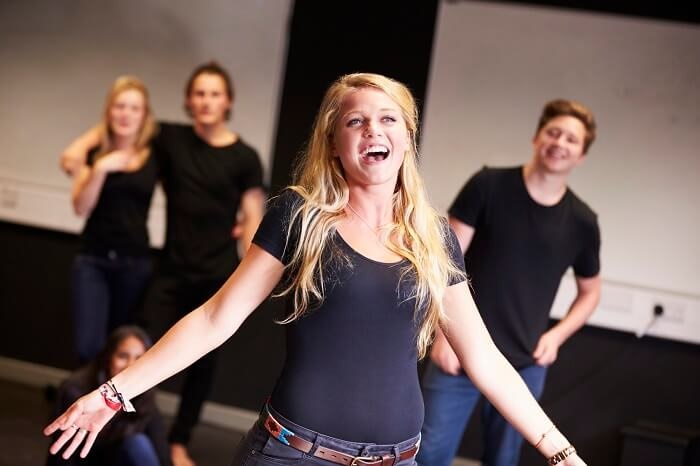In New Zealand they speak English. However, their accent almost creates an English of their own. You may hear their accent or English commonly referred to as Kiwi. Also, you have likely heard the New Zealand accent portrayed on television and probably can hear the heavy Australian influences. You may also notice there are words and sound you are familiar with mixed in with ones you aren’t.
Many accents are called upon for films, plays, and commercials. If you cannot accurately speak in the accent you may miss out on the opportunity of a role. You may even pass up a role because you do not have the confidence that you could sound authentic at all. Not to mention you still have lines to learn and a role to act out. Do not fret. There are ways to practice and tips to follow that can get you going on the right track. This article will give you some direction to getting a convincing New Zealand accent in your bag of tricks.

10 Tips on How to Speak with an Almost Genuine New Zealand Accent
1. Intonation
Intonation refers to the tone and pitch changes in your voice as you speak. In this case, intonation will be one of the first things you will need to adjust in order to speak in a New Zealand accent. The New Zealand accent rises towards the end of every sentence. This is similar to how your tone rises when you ask a question. This keeps the conversation in play, so to speak. To a Kiwi, a full stop where your tone drops or finalizes makes it seem like you have ended the conversation all together. A lift in intonation also helps create the cheerful and sing songy tone of the accent.
If you ever get the chance to speak to a native you will find they are very good conversationalists and enjoy chatting. Using proper intonation will help you sound authentic and keep the conversation in a pleasant tone.
2. Accent Sound Differences
Once you have the basics of tonal quality down, it is time to focus on the accent aspect of speech. A New Zealand accent has most of the pronunciation differences within the vowel sounds. This may be intimidating but if you remember the few major differences it can become second nature with some practice.
- Change your letter a to the letter e. Attention class. Let’s get back to the bus. This sentence will now be pronounced, Ettention cless. Lets get beck to the bus.
- Next, e becomes elongated. Words like, ten and minutes will become teen and meenuts.
- Also, change your I to u. I am sure you have heard many people who imitate the New Zealand utter this phrase, Let’s get some fush and chups. Demonstrating the change from an English speaker’s short I sound in fish and chips.
- The only exception to this rule is if the I is long like when it it is pronounced in dice. Then you will find the tricky letter I makes more of an oi sound. Dice then becomes doice. The vowels we have not covered retain the same pronunciation as with American English.
4. Do Your Research
An excellent way to get acquainted with a new accent is by listening to speakers who natively speak the language. Look for online videos of interviews, YouTube videos of native speakers, and podcasts of where individuals with a New Zealand accent hold conversations. This will give you insight into a more raw and natural viewpoint of what you should sound like once you have mastered the accent.
Pay attention to how the speakers pronounce words and sounds. Listen for aspects that are not normal for your own speech patterns. Observe any repetitive sounds and speech habits. Identifying and keeping these points in mind will aid you in figuring out how to translate the lines for your role in an authentic New Zealand accent.

5. Do Not Just Listen, Watch
If you find some videos of native speakers, take a moment or two to pay attention to the person’s mouth as they speak. I know that sounds strange. But if you do so you can actually help yourself realize how to form your own mouth to properly speak the sounds.
Watch to see if their mouths are wide open when they speak or if they seem to speak through their teeth. See if they have a lot of lip movement or are the lips drawn tight and move very little. Taking these details into consideration will help aid you in accurate pronunciation.
6. Can You Really Hear What You Are Saying?
Have you ever sung a song and thought, Hey, I sound pretty good? Then you hear yourself on a recording and you sound like a completely different person? Sometimes it is difficult to really hear yourself without being on the outside. It is a good idea to make a recording of yourself as you practice your New Zealand accent.
You can even record yourself repeating words and sentences from one of the videos you are watching. Then you can compare the recording of yourself to the recording of the native speaker and pick out any areas where you need improvement. This will give you the opportunity to adjust your accent accordingly.
7. Ask to Borrow Some Ears
More than likely you are not trying to spend the time to use a New Zealand accent so that you can sit around and amuse yourself. Eventually you will need to become comfortable using it in front of others. A great first step is to use it with your family and friends. These are individuals you already have an established level of comfortability.
Plus, they will be gentler with their critiques whereas harsh criticism may be very discouraging this early in the game. Let them give you feedback and enjoy getting in some solid practice time. The more you use the accent, the more naturally it will come.
8. Time to Step Out of Your Comfort Zone
Now that you are comfortable using your New Zealand accent in front of people you know, it is time to get out there and use it in more uncomfortable situations. Let’s be real about it, you eventually will be up in front of a director who will not be so easygoing on his or her criticism. You will likely already be nervous. Thus, you do not need the accent to add to that stress that way you can focus more on your acting and remembering your lines.
An excellent way to practice this step in your journey is to get out in public and use your new accent. Try patronizing an establishment you do not usually go to. Stop into a café and order in your accent. Ask questions about a particular drink or just strike up some small talk. If you find your accent the subject of the small talk, you may be on your way to perfecting your skill. If the waiter seems off-put by your accent and is giving you strange looks, you may need more practice. Try letting them in on why you are talking like that and get some terrific real-time criticism in to add to your practicing. Either way, your goal should be to become comfortable when using the accent regardless of where you are.
9. Use Phonetics with Your Script
Learning a bunch of new lines is intimidating enough. Throw having to speak in an unfamiliar accent in the mix and you have all the ingredients for mental overwhelm. Why not try to kill two birds with one stone? Try rewriting words in your script phonetically. That is, write them how they would sound pronounced in the accent.
That way as you read through your lines you do not have to take extra time to figure out how you would say it and it no longer becomes a stumbling block. Plus, you are memorizing your lines in the accent which removes the need to do both tasks separately.

10. Exercise, Then Exercise Some More
Ok, it sounds cliché because we have heard it since we were kids. Practice makes perfect. Well, all of those years that phrase was put into our heads now shows the truth in it. Nothing can replace straightforward practice in this case.
The more you use your New Zealand accent, the better you will get. Use it all the time, at home, at work, on the street. Let it become so second nature that you can turn it on and off on a whim.
To Sum It Up
A New Zealand accent can become a go to skill in your box of acting tricks. You can get an edge over others competing for a part if you sound authentic and look natural when you use it. A good accent will highlight your performance and let your acting skills really shine through to the audience. Take your time, keep these tips in mind, and put in the practice and you will succeed.
What sort of tricks did you use to get used to using an accent not your own? Comments are welcomed and encouraged.
Images from depositphotos.com.